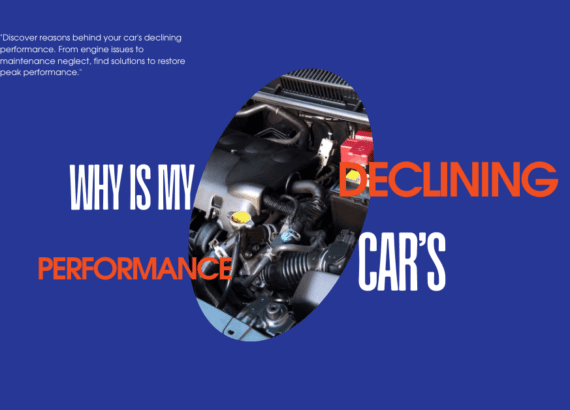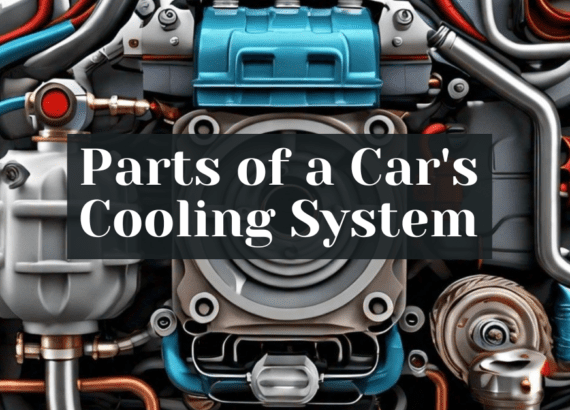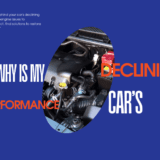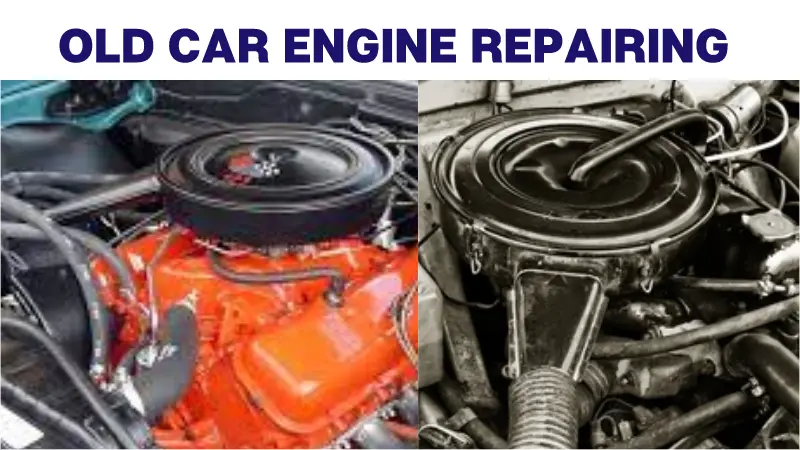Engine Health: Keep Your Car Working At Its Best

As an ardent car owner with years of hands-on experience in Indonesia, I’ve come to realize the vital importance of regular checks on the health of my car’s engine. Ensuring that all vital components are in top condition is crucial for the engine to operate properly. This dynamic has spurred me to craft a complete guide that encompasses useful tips and advice on how to maintain your vehicle for optimal performance.
The practice has unveiled numerous benefits; maintaining good health for your engine not only guarantees that your car will live longer and suffer fewer breakdowns as it ages but also preserves lasting performance with minimal dips in speed, responsiveness, and fuel efficiency.
Incorporating regular engine maintenance into your car care routine significantly boosts your vehicle’s value, making it easier to shift should you decide to sell. This guide offers insights into how to improve your car’s fuel economy and performance, providing a clear understanding of how an engine works and ways to keep it in good nick.
Delving into these guides, you’ll find a treasure trove of information on ensuring exemplary engine health, which is pivotal for harnessing your vehicle’s full features and capabilities. By adopting these basic and advanced tips, you’re not just ensuring an optimal driving experience but also imbuing your journey with enhanced safety, performance, and an assurance of lasting performance amid the continuous evolution of automotive technologies.
Here Are Engine Health Checks You Need to Do
When buying used cars, always check beneath the bonnet to assess the engine’s health; tidy looks outside can deal you into overlooking hidden problems. Rely on basic inspections to find what’s tough and dodgy, making it worth your time. A proper look can help you steer clear of issues and ensure you’re making a good deal.
Check Engine Oil Level and Condition
When approaching the task of maintaining your car’s engine, the engine oil checks stand out as fundamental. Lifting the bonnet, use the measuring stick to gauge both the level and condition of the oil. Ideally, it should not fall below the minimum nor exceed the maximum limits. The color and clarity of the oil can reveal much about its state—with cloudy or dark oil signaling the need for an immediate replacement. It’s my routine to ensure regular oil changes, recognizing this as a crucial element in caring for my car.
Check Cooling System
To prevent your car’s engine from overheating, a cooling system inspection is essential. Verify both the sufficient level of radiator water and the absence of leaks. Observing the radiator fan to rotate correctly when the engine is hot aids in maintaining an optimal engine temperature. Should you find any signs of problems, it’s pivotal to check with the nearest repair shop for any necessary repairs.
Battery Check
A healthy battery is essential to keep your car running smoothly. Check for signs of corrosion or loose wiring, ensuring the battery water level is appropriate. Based on the type, regular water topping-up might be needed to maintain levels above the minimum line. Ignoring signs of a low battery could compound problems, thus it’s recommended that faulty batteries be replaced promptly.
Check the Ignition System
The ignition system sparks life into your car’s engine, making it pivotal to ensure all components, especially spark plugs and ignition cables, are free from damage or leakage. A problem in this system often manifests as difficulty to start or unstable engine performance. Regular repairs and maintenance are key to uphold engine performance.
Check the Combustion System
A car’s engine relies on an efficient combustion system. Inspecting elements like the carburetor or fuel injection system depends on your engine’s type. Be on the lookout for leaks in the fuel line or improper fuel spraying. Any problems found should lead you to a trusted repair shop for further checking.
Check Fuel System
Ensuring your car’s fuel system is working properly involves inspecting the fuel tank for leaks and evaluating the fuel filter for dirt or blockages. A clean and efficient system helps your car’s engine to run optimally.
Drive Belt Inspection
Regular checks on engine and drive belts, inclusive of alternator belts and fan belts, are crucial. Look out for excessive wear or cracks; any damaged belt found should lead to an immediate replacement to ensure the drive system remains in proper function and prevent disruption in engine performance.
Check Lubricating System
The lubricating system plays a vital role to protect and maintain your car engine’s performance. A check involves ensuring the oil level is within the specified range and assessing the oil for color and clarity. Remember, dirty or undergreased oil can cause excessive friction and eventual damage to engine components.
Transmission System Inspection
For those with an automatic transmission, examining the level and condition of transmission fluid via a measuring stick is advised. Cloudy fluid or a bad smell signals the need for a replacement to ensure smooth gear shifts and optimal car performance.
Check Brake System
The functionality of your brake system is critical to safety while driving. Inspect the condition of brake pads, brake discs, and drums for excessive wear, cracks, or deformations. Additionally, ensure the brake fluid level is optimal; symptoms like unresponsive brakes or a squeaking sound necessitate a repair shop visit for inspection and repair.
Check the Suspension System
A well-maintained suspension enhances comfort and stability during driving. Condition checks should focus on spring and foam for any leaks or damage. Experiencing shaking or instability on uneven roads? It might be time to see a suspension expert.
Steering System Check
Ensuring the steering system functions properly involves examining the tightness of the wheel, in addition to checking for leaks. A thorough look at the condition of tie rods, ball joints, and bushing for excessive wear or damage ensures good and precise control.
Check Charging System
Checking the charging system ensures the battery remains well charged. Inspect the condition of the alternator or generator, along with the drive belt, for proper tension and signs of sagging. An improperly working system can leave your battery weak or depleted.
Check Cabin Air Conditioning System
Keeping the air conditioning system in condition involves regular checks on the air filter for dirt and dust, and ensuring the temperature control and blower are functioning properly for optimal air quality in the cabin.
Check the Exhaust Gas Recirculation (EGR) System

The EGR system is instrumental in reducing exhaust emissions while maintaining engine performance. Checking for leaks or problems with the EGR valve is necessary if you encounter poor engine performance or difficulty starting your car.
Emission Control System Inspection
Inspecting emission control systems ensures environmental compliance and the performance of vital components like catalytic converters and oxygen sensors. Any damage or leakage discovered should be handled by a trusted workshop.
Check Refueling System
An operational refueling system is key for working properly fuel mechanics. Inspect the fuel tank, fuel hose, and fuel pump for leaks or damage. Ensuring the fuel tank cap is properly attached prevents dangerous leaks.
Check Electronic Control System
Modern cars rely heavily on Electronic control systems or ECUs for regulating engine performance. Persistent problems or an illuminated check engine indicator light necessitate a diagnosis at a repair shop.
Check Electronic Ignition System
The electronic ignition system enables precise engine combustion. Check spark plugs and ignition cable for damage or excessive wear, and replace according to manufacturer’s recommendations for optimal engine performance.
Exhaust System Check
A well-functioning exhaust system plays a critical role in removing exhaust gases from the engine. Be vigilant for any leaks, signs of damage, cracks, or corrosion. Any problems should lead to an immediate consultation with an expert for the necessary repair or replacement.
Check Air Conditioning System
The air conditioning system, distinct from the cabin’s, focuses on the type cooling system. Ensuring the air filter is clean prevents dirt from impeding airflow, which could affect both engine performance and air quality in the car.
Machine Temperature Check
Monitoring the temperature indicator on the dashboard ensures the engine operates within the normal range. An unusually high reading might mean it’s time to let your vehicle cool down, avoiding overheating and potential serious damage.
Check Engine Sound
An attentive ear can catch tell-tale sounds from the engine, signaling potential issues. Unnatural sounds, like squeaking, noise, or unusual humming, indicate a problem with internal engine components. Upon hearing any suspicious sounds, a trusted mechanic should immediately examine your car.
Electrical System Inspection
Conducting electrical system checks ensures that exterior lights, interior lights, horns, and wipers are functioning properly. Any problem found, such as broken cables or loose connections, should be promptly addressed to ensure safety and driving comfort.
Check Idle Speed Control System
Ensuring the idle speed control system keeps the engine speed at a stable speed is critical. Symptoms of an issue include an unstable engine or shutdown. Experience any erratic behavior? It’s time for a check.
Check Engine Temperature Control System
The engine temperature control system plays a crucial role in maintaining the optimum temperature for the engine’s operation. An indication of too high engine temperature or signs of overheating demands a pause in your trip to allow the vehicle to cool down.
Check Drive System
Regular checks of the drive systems, including the clutch and transmission, are crucial. A slippery or worn clutch and a transmission that doesn’t shift smoothly often point to problems. Detecting difficulty changing gears or hearing rough sounds? A repair shop consultation is necessary.
Service Record Check
To ascertain your car has undergone the necessary maintenance and repairs on a specified schedule, a thorough service record check is invaluable. Always note to follow the manufacturer’s recommendations for servicing and maintenance to ensure your vehicle’s longevity and performance.
Six Ways to Recognise the Signs of Car Engine Damage
- Suspicious Noises: Beware of unusual sounds like knocking, hissing, or rumbling from the engine, signaling possible internal issues.
- Excessive Smoke: Notice the color and amount of exhaust smoke; blue indicates oil burning, while white suggests a coolant leak.
- Check Engine Light: Pay attention when the engine light flashes on your dashboard; it’s a direct signal from the car’s diagnostic system.
- Oil Level and Condition: Regularly check the oil; low levels or dirty oil can indicate leaks or the engine consuming more oil than it should.
- Engine Overheating: Recognize signs of overheating, such as the temperature gauge rising or steam from the bonnet, indicating cooling system problems.
- Performance Issues: Be alert to changes such as reduced power, hesitation during acceleration, or stuttering starts, all signs of potential engine damage.
Understanding these signs can greatly aid in preventing further engine damage and ensure timely maintenance.
Conclusion
Maintaining the well-being of your car’s engine is paramount, not just for the longevity of the vehicle but also for your safety and performance on the road. From my extensive experience in Indonesia, I have seen firsthand the positive impacts of regular engine maintenance. By implementing the advice and tips laid out in this guide, car owners can significantly enhance their vehicle’s performance, fuel economy, and overall functionality.
Regular checks on everything from the oil level to the combustion and fuel systems ensure the engine runs smoothly, minimizing the risk of breakdowns and costly repairs. Additionally, understanding the signs of potential engine damage is crucial for timely interventions, preventing minor issues from escalating into major problems.
This holistic approach to engine care not only prolongs the life of your vehicle but also ensures a reliable and enjoyable driving experience. By prioritizing engine health, you’re not just investing in your car’s present performance but safeguarding its future reliability and value as well.
FAQs
How can I maximize my engine life?
Avoid sudden acceleration, harsh braking, and excessive idling, as these habits put unnecessary strain on the engine. Smooth driving allows the engine to warm up gradually and reduces wear and tear on internal components. Additionally, excessive idling wastes fuel and can contribute to carbon buildup in the engine.
How can I make my engine more reliable?
Most manufacturers suggest every 5,000 miles. If you push it too far, your oil will become dirty, which can spell disaster for the essential components of your engine. The car’s air filter filters out dirt and debris, which can seriously harm your engine and chop years off its life.
What weakens a car engine?
A lack of lubrication will cause unnecessary friction inside the engine, leading to overheating and worse still, the engine seizing up. Make sure that you get your vehicle periodically serviced, which includes a regular oil change to keep quantities at an appropriate level.
Can you prevent engine failure?
Engine failure is one of the most expensive repairs or replaces that we see with vehicles. However, many times, engine failure can be prevented with simple routine maintenance like oil changes. Change the oil in your vehicle every three to five thousand miles.
Are long drives good for your car?
In general, longer trips are better than shorter ones. Shorter trips often, though not always, involve several starts and stops of the engine, each one of which adds stress to the engine, both moving parts and temperature-affected/exposed parts.
Does driving fast clean your engine?
It’s not the “fast” that will clean an engine of contaminates—mostly carbon and water. Speed only produces wind resistance on the exterior of a car. What should be stated is that running an engine at a higher than medium speed—say, 4,000 rpm vs. a moderate 2,000 rpm is what is beneficial.











